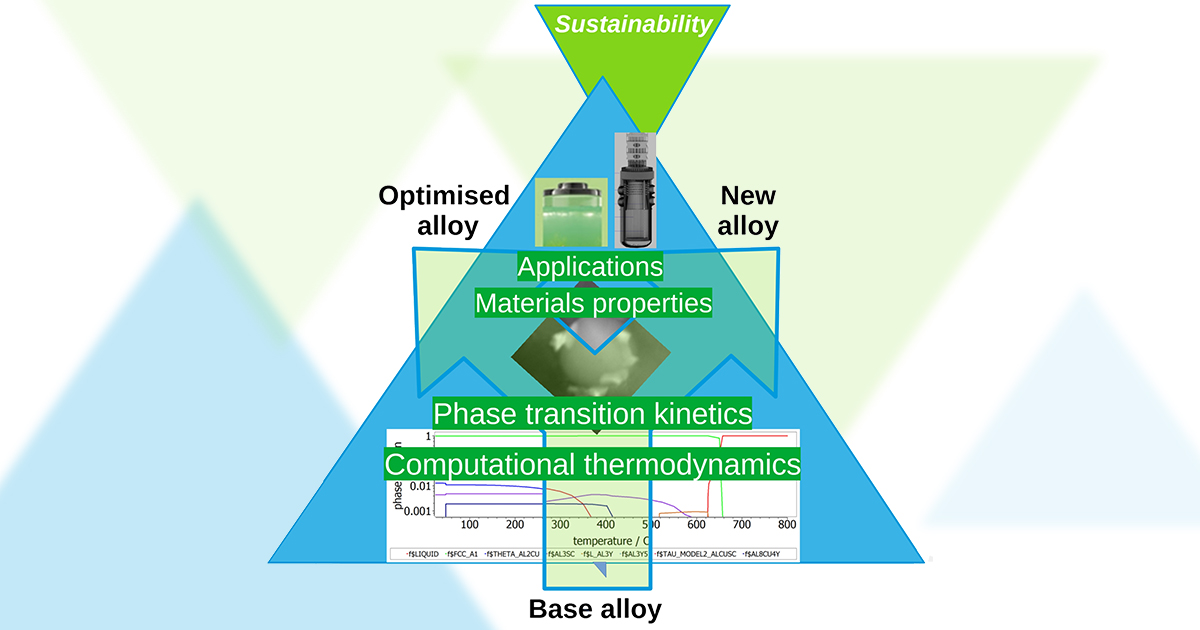- 2.5Impact Factor
- 5.3CiteScore
- 19 daysTime to First Decision
Thermodynamic Assessments and Phase Equilibria Studies of Sustainable Alloy Systems
Special Issue Information
Dear Colleagues,
Different approaches for achieving higher sustainability use processing and alloy production technologies. Moreover, it is very relevant to choose alloying additions for conventional Fe-, Ni-, Ti-, Al-, or Mg-based materials, high-strength multiprinciple alloys, solders, alloy fillers, alloy phase change materials, alloy anode materials in re-chargable battery systems, etc., which are non-toxic, mined in an environmentally friendly and ethical manner, and humane, and they have a high recycling potential, to name a few criteria for their sustainability.
Studying the thermodynamics of those alloy systems, ranging from binaries and ternaries to multi-component database developments, by employing computational thermodynamics will likely provide a deeper understanding of phase stabilities and thermodynamic properties as a function of alloying at different temperatures. This information is highly necessary and relevant for material optimization or developing new materials, since it directly links to the mechanical properties and process abilities and product applications of a material.
The submission of fundamental and applied, experimental, computational, and hybrid studies on topics ranging from thermodynamics and kinetics to alloy properties using the framework of sustainable alloy development is highly welcome.
Dr. Erwin Povoden-Karadeniz
Guest Editor
Manuscript Submission Information
Manuscripts should be submitted online at www.mdpi.com by registering and logging in to this website. Once you are registered, click here to go to the submission form. Manuscripts can be submitted until the deadline. All submissions that pass pre-check are peer-reviewed. Accepted papers will be published continuously in the journal (as soon as accepted) and will be listed together on the special issue website. Research articles, review articles as well as short communications are invited. For planned papers, a title and short abstract (about 250 words) can be sent to the Editorial Office for assessment.
Submitted manuscripts should not have been published previously, nor be under consideration for publication elsewhere (except conference proceedings papers). All manuscripts are thoroughly refereed through a single-blind peer-review process. A guide for authors and other relevant information for submission of manuscripts is available on the Instructions for Authors page. Metals is an international peer-reviewed open access monthly journal published by MDPI.
Please visit the Instructions for Authors page before submitting a manuscript. The Article Processing Charge (APC) for publication in this open access journal is 2600 CHF (Swiss Francs). Submitted papers should be well formatted and use good English. Authors may use MDPI's English editing service prior to publication or during author revisions.
Keywords
- sustainable alloys
- alloy systems
- phase stabilities
- computational thermodynamics
- thermodynamic properties
- energy

Benefits of Publishing in a Special Issue
- Ease of navigation: Grouping papers by topic helps scholars navigate broad scope journals more efficiently.
- Greater discoverability: Special Issues support the reach and impact of scientific research. Articles in Special Issues are more discoverable and cited more frequently.
- Expansion of research network: Special Issues facilitate connections among authors, fostering scientific collaborations.
- External promotion: Articles in Special Issues are often promoted through the journal's social media, increasing their visibility.
- e-Book format: Special Issues with more than 10 articles can be published as dedicated e-books, ensuring wide and rapid dissemination.

